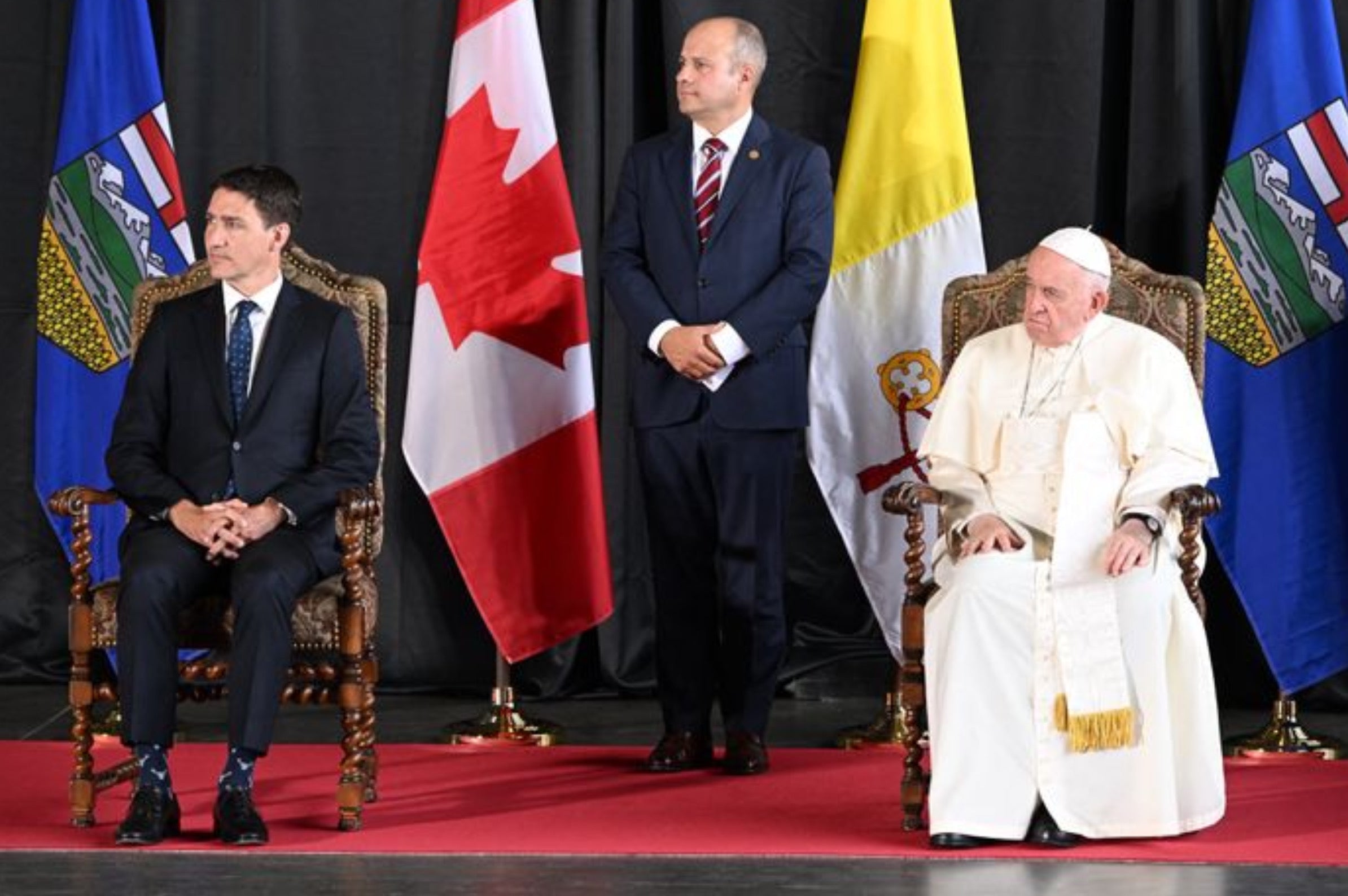In Canada, the pope on a mission of reconciliation with the natives
Eva Deschamps / July 25, 2022

Towards a historic apology? Pope Francis is visiting a former residential school for indigenous people in Canada on Monday, where he may renew his request for forgiveness for the Church's role for more than a century in the abuse of thousands of children.
The 85-year-old pontiff arrived Sunday in Edmonton, Alberta, for a six-day visit to the country, awaited for years by the First Nations, Métis and Inuit peoples.
At the heart of this penitential pilgrimage, the painful chapter of the residential schools for native children, a system of cultural assimilation that has caused at least 6000 deaths between the late nineteenth century and the 1990s and created a trauma for several generations.
The Canadian government, which has paid billions of dollars in reparations to former students, formally apologized 14 years ago for setting up these schools to "kill the Indian in the heart of the child.
And the Anglican Church followed suit. But the Catholic Church, in charge of more than 60% of these residential schools, has always refused to do so until now.
In April, everything changed with the apology of Pope Francis who promised to come to Canada. Thousands of aboriginal people are now waiting for an apology on their land
Francis will travel at 10:00 a.m. to Maskwacis, an aboriginal reserve about 100 km south of Edmonton, where the former Ermineskin residential school, one of the largest in Canada, opened from 1895 to 1975, is located.
After a silent prayer in the cemetery, he will deliver his first speech, in Spanish, to thousands of people, including former residential school students.
Psychological help will be offered to participants from all over the country.
The pope will then go at 4:30 p.m. to Edmonton's Sacred Heart of the First Peoples Church, one of the city's oldest, rebuilt after a fire in 2020.
There he will give a second speech to the indigenous communities.
I hope this visit is the beginning of a change in history and a way for us to begin our journey of healing, George Arcand Jr., Grand Chief of the Confederacy of Treaty Six First Nations, told Canadian public television.
In April, the Holy Father apologized for the first time in the Vatican for the role played by the Church in the 130 residential schools in the country, criticizing the ideological colonization and the action of assimilation of which so many children were victims.
Some 150,000 indigenous children were forcibly enrolled in these schools, where they were cut off from their families, language and culture and often subjected to physical, psychological and sexual abuse.
Little by little, Canada is opening its eyes to this past described as cultural genocide by a national commission of inquiry: the discovery of more than 1,300 anonymous graves in 2021 near these residential schools has created a shock wave.
The long-awaited papal visit has raised the hopes of some survivors and their families. Many are also hoping for symbolic gestures, such as the repatriation of some of the indigenous artifacts that have been kept in the Vatican for decades.
For me, it means a lot that he came. I think at some point you have to forgive, even though a lot of things were taken away from us, said Deborah Greyeyes, a 71-year-old Edmontonian from a Cree community (the largest Aboriginal group in the country).
On Tuesday, the Pope will celebrate Mass at Edmonton's Commonwealth Stadium and travel to Lac Sainte-Anne, site of a major annual pilgrimage. He will then travel to Quebec City on Wednesday before a final stop on Friday in Iqaluit, Nunavut, a city in Canada's far north in the Arctic archipelago.
Still weakened by knee pain, the Argentinean Jesuit appeared Sunday in a wheelchair but smiling upon his arrival in Edmonton. His program was arranged to limit his movements, according to the organizers.

